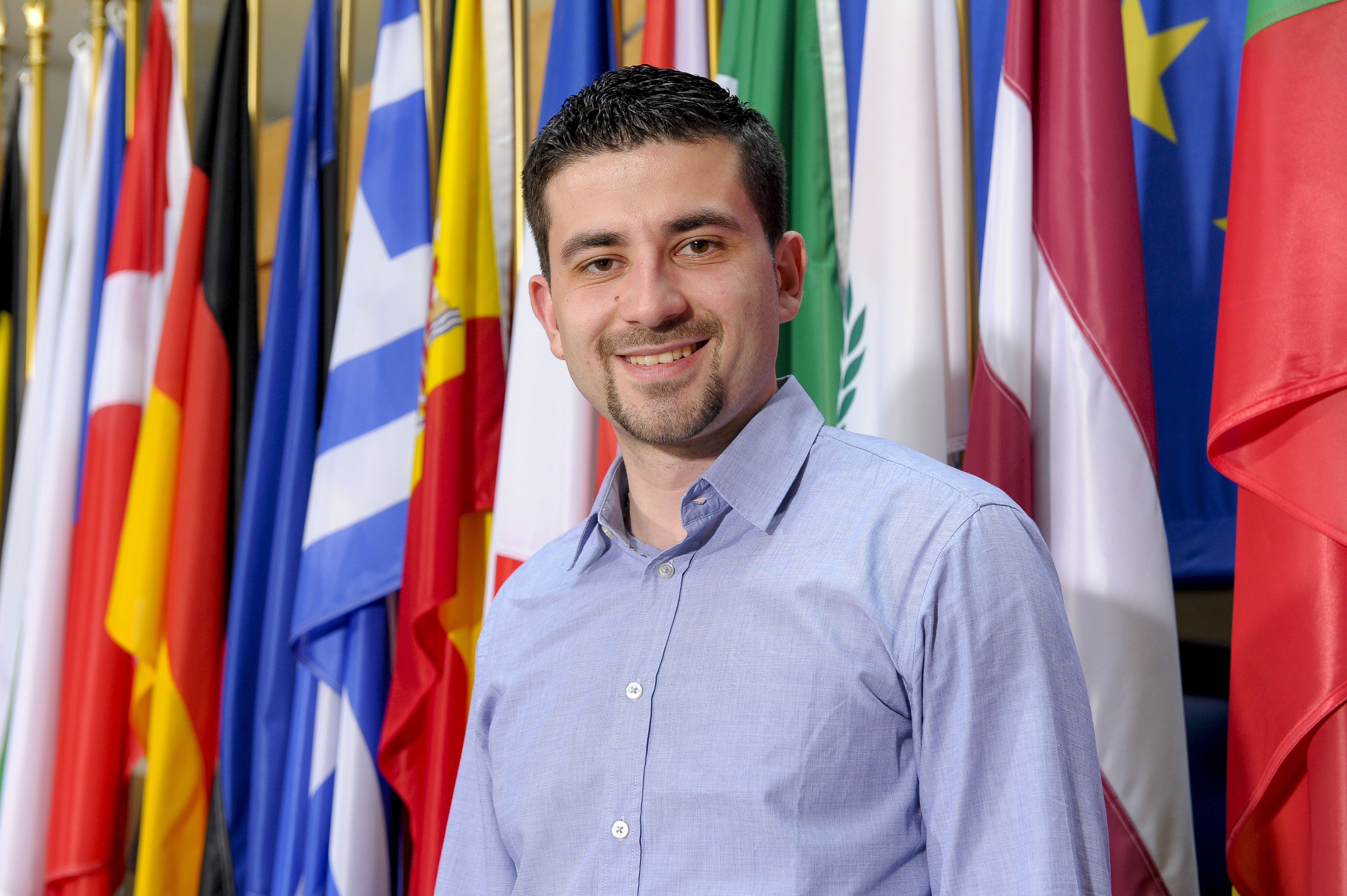Aleksandar Crkvenjaš graduated from the School of Law at the East Sarajevo University. Since 2009, he has been employed as a journalist, reporter, head of the central news program “Dnevnik” and the political magazine “Pečat” at the Radio-television of Republika Srpska. In April 2016 he visited Brussels within the framework of the European Union Visitors Programme (EUVP). The goal of the EUVP is enabling young leaders, future governmental leaders, political leaders, leaders in the media and other areas in non-member countries to visit the EU institutions and increase communication and cooperation between the EU and non-EU experts.
1. The EU Visitors Program provides young professionals with the opportunity to obtain detailed information on the EU objectives, policies, institutions and people. How much have you learned about the functioning of the EU during your study visit?
I have learned quite a lot. The program is tailored to meet the interest of each participant. In addition to the general information on the EU which are accessible to everyone, we engaged in specific discussions and were provided with the information on the work of certain institutions. I found it very useful and interesting to meet, talk to and exchange views with members of the European Parliament, officials of the European Commission and the European Parliament as well as of other EU institutions. In my view, the best way to gain an insight in the way the institutions operate, the scope of their work and the way they provide support to the EU citizens and what they are doing when it comes to Bosnia and Herzegovina is to talk to the people who work there.
2. The program encourages mutual understanding and cooperation between experts from the EU and their counterparts outside the EU. You had the opportunity to meet the relevant officials at the European Commission. So, in your opinion, to what extent are they familiar with the current state of affairs in Bosnia and Herzegovina ?
I think they are well aware about the current situation in Bosnia and Herzegovina. For me it was very interesting to talk to the officials from the European Commission dealing specifically with the European path of Bosnia and Herzegovina. I was curious to know how Brussels sees Bosnia and Herzegovina, the country’s path towards the EU accession and the requirements it has to meet in order to progress and become an EU member state. There is a strong commitment of all those dealing with BiH to help the country progress towards the EU, but no one from Brussels can do the work of the BiH’s institutions responsible for meeting the necessary requirements for the country to move towards the EU.
3. What did you find most impressing during your study visit?
Many things. It is hard to single out something specific. In addition to the EU institutions and their work, working and living conditions in the EU, I would note the European standards which are much more favourable comparing to those in BiH. Of course, I have to mention that the cities I visited, Brussels and Strasbourg, have made a strong impression on me. History, culture, and life in Brussels, the architecture in Strasbourg where one can see Germany and France intertwining at every turn give the city a unique charm and look.
4. How much will this study visit affect your future work?
I think the study visit will definitely affect my future work since I have gained an insight into the way the EU institutions work which will help me in my further work. Given that in my line of work I often do a lot of reports on the BiH’s EU integration, I believe that now I will be able to more effectively communicate the information on the EU and the European path of BiH to the BiH general public.

